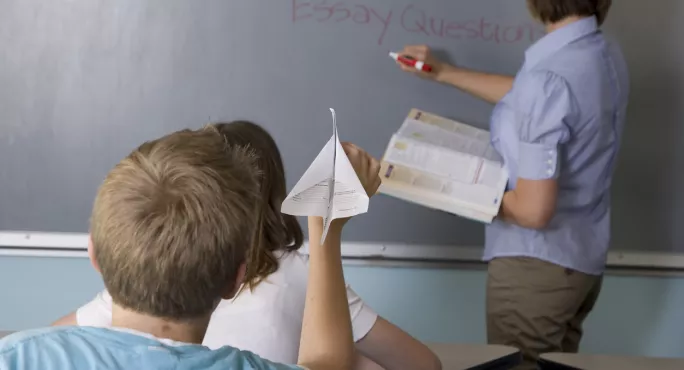Schools are planning to keep some Covid safety measures in place on an ongoing basis after seeing how they improve behaviour, say headteachers.
In its official response to education secretary Gavin Williamson’s consultation on pupil behaviour, the Association of School and College Leaders said that some emergency measures, such as staggered ends to the school day and one-way systems in corridors, have contributed to better pupil behaviour and improved relationships between pupils and staff.
Related: Williamson ‘outdated and out of touch’ on phones
Gavin Williamson: DfE backs mobile phone bans in schools
Opinion: Patronising to suggest schools are not dealing with phones
Here are the strategies that headteachers felt improved behaviour overall:
1. Staggered ends to the day
“Staggering the end of the school day led to calmer and more orderly ends to the day (particularly in city schools), and to fewer complaints of anti-social behaviour,” ASCL’s response says.
“Several schools reported that they plan to maintain this arrangement post-pandemic,” it adds.
2. One-way systems
“One-way systems worked well and will be maintained in some schools, although some schools felt strongly there is a danger that systems such as these become more ‘rules’ to be followed and require maintenance through monitoring and sanction, with little difference being made to outcomes,” the response says.
It adds that for schools with narrow corridors, where one-way systems were already in operation, pupils were able to see the reasoning behind these rules.
3. Bubbles
“Keeping bubbles together allowed year groups to form more of a community and helped the school focus in on their needs more, meaning management became easier,” it says.
4. Lockdown schooling
“Lockdown schooling on-site, for the most vulnerable, enabled positive relationships to be formed with children and adults who the child may not have spent time with before,” it says.
It adds that staff had more time and fewer pupils in class, making it easier to recognise and reward positive behaviour.
Schools also recognised the importance of staff wellbeing, for example, through clear communication of risk assessments.
5. Building relationships with families
“More frequent updates for parents and families to cite positive achievements helped to strengthen relationships with families,” it says.
Schools also reported that “encouraging parents to take an interest by inviting them into the Google classroom when appropriate” had a positive impact on the behaviour of some pupils.
Liaising with early help, food banks and local charities also helped to build positive relationships between schools and families.
6. Classroom layout
Fewer children and fewer moves suited many children who find it more difficult to behave as a result of anxiety.
And fewer changes of clothing, for example for physical education, “reduced opportunities for tension between peers”.
7. Outdoor space
“Children and young people spent more time outdoors in many schools,” it says.
“Several schools reported setting up new covered areas in the playground, which allowed pupils to be outside even when it was wet. Schools said they would like to invest further in creating all-weather spaces.”

